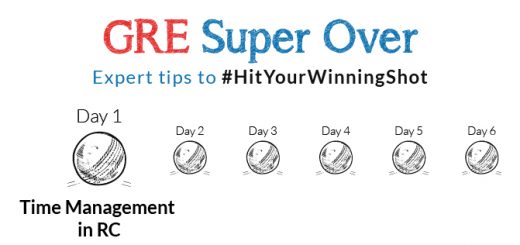How to Choose a Good GRE Word List?
“Twas brillig, and the slithy toves
Did gyre and gimble in the wabe:
All mimsy were the borogoves,
And the mome raths outgrabe.”
–“Jabberwocky” by Lewis Carol
Those were the opening lines from the poem, “Jabberwocky” written by Lewis Caroll in 1871. Thankfully, today we don’t have to deal with this kind of mind boggling English Vocabulary and neologisms like ‘galumphing’ and ‘chortie’ in the GRE. But that doesn’t mean that you won’t be encountering words such as mealy-mouthed, astringent, miasma, or crotchety in the reading comprehensions or the sentence equivalence questions of your GRE test.
English Vocabulary always has proved to be one of the most intimidating nemesis for many GRE aspirants. English Vocabulary Lists and Vocabulary flashcards are available a dime a dozen both in the online and offline media. But the real problem is that the GRE aspirants encounter the hurdle of too many choices. With so many seemingly equally potent GRE word lists and vocab lists, it often becomes difficult to narrow down on one. This leads to many ineffective ways of choosing a good English vocabulary list that is good for your GRE preparation.
One common misconception is that the more the number of words the English Vocabulary list has to offer, the better it is. Wrong. A good vocabulary list should offer high frequency GRE words. There is no point if a vocabulary list has words like ‘frumious bandersnatch’ and ‘vorpal blade’. You need the vocabulary list to write the GRE, not to understand Lewis Carol novels! Right?
Another ineffective way of preparing for GRE Vocab is vehemently cramming up words and their definitions. This most definitely never works. Apart from being tough and tedious, this process has no long-term retention value. Just remembering GRE words and definitions isn’t enough. You have to train your brain to identify the meaning and usage of the word in the context of a sentence. One more mistake students do is to start learning GRE words in an alphabetical order. Even though this might seem to be a simple enough mechanism, it is grossly ineffective. By the time the students reach the latter half of the alphabets, they tend to forget the meanings and usage of the GRE words starting with the earlier alphabets.
Download AdmitEDGE eBook on ‘How to learn words’ to score high in your GRE Verbal.
A good vocabulary list should have the following features:
- Only the high frequency GRE words – No unnecessary extra words.
- A recommended learning order – As I mentioned earlier, learning the GRE words in an alphabetical order is found to be ineffective in most cases. Hence, the vocabulary list should have the words in a more scientific and logical order. It helps if the vocabulary list is broken down into multiple ‘packs’ of related words.
- Related words – Sometimes to understand the meaning of the GRE words, it is necessary to understand the meaning of related and similar words also. Unless you know the subtle differences between them, it becomes very difficult to retain their meanings in your memory and leads to ambiguity during the exams.
- Usage – The definition should be associated with a proper example of how to use that GRE word in a sentence.
- Picture Cues – We tend to remember and recall pictures more than words. If a word and its definition is accompanied by a related picture, it becomes easier to remember, easier to understand, and more exciting to learn GRE words.
- Pronunciation – If you say out loud, and say it properly, the word becomes easier to remember.
- Figure of speech – The vocabulary list should ideally provide the figure of speech of the word, so that it becomes easier not just to remember but also understand the word properly.
- Synonyms and antonyms – Sometimes a few words appear alien to us and difficult to remember but we do understand the meaning of its synonyms or antonyms. This in turn helps us not just to learn the original word, but also to remember it. Thus, a GRE vocabulary list having synonyms and antonyms as well is very handy.
Needless to say, GRE Vocabulary lists containing all these features are rare to find. I would recommend anyone who is planning to write the GRE to use one such tool, WordBot. I recommend this free tool to all my students who are appearing their GRE exams. And guess what? It works brilliantly. I will let you guys explore a few nifty and helpful features of this slick tool.
As you can see, this tool checks every single box of our checklist and offers more. It can be accessed from your smartphone, your tablet, or your laptop. So, you can have a dose of the GRE Words of the day during your bus commute, during coffee breaks, while waiting in long queues, while waiting for your order to come in eateries… pretty much from anywhere and at any time.
I’m yet to see a more effective method for remembering GRE vocabulary lists. And the cherry on the topping is that, this is absolutely free to use. Go ahead, check out WordBot, Explore the features and improve your vocabulary.
Happy Learning!









